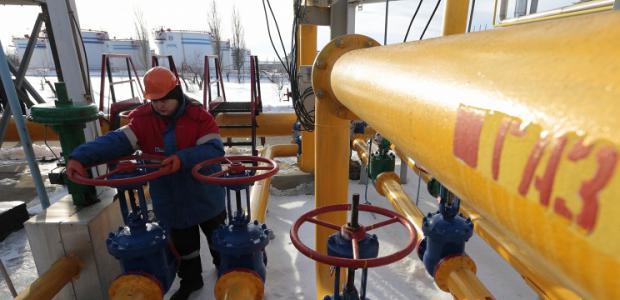An analysis of first-stage market test results conducted to determine the commercial interest for the Greek-Bulgarian IGB interconnector has raised concerns among the project’s partners as well as the governments of both countries.
Although the initial interest concerning capacity level commitment produced satisfying results – the total figure exceeded four billion cubic meters per yer, while the project’s sustainability is assured at 1.7 billion cubic meters – a closer look at the study’s participants and the amounts they declared has created doubts as to whether the levels expressed will be followed up when the time comes to submit binding bids.
Officials are remaining reserved despite the encouraging initial figures as parties had not followed up with binding bids that corresponded with the inital levels of interest expressed in a previous market test conducted.
Six companies declared an interest to reserve capacities in the IGB’s latest market test. These are the Bulgarian state-run gas company Bulgaraz, DEPA, the Public Gas Corporation, Italy’s Edison, Azeri company Socar, UK firm Noble Clean Fuels, and Gas Trade, a member of the Copelouzos corporate group.
Bulgaraz has signed an agreement to import one billion cubic meters of natural gas from the Azeri gas field Shah Deniz II as of 2020 and is interested in transferring natural gas to reach Greece from the TAP pipeline.
DEPA, a member of the IGB consortium, has declared it intends to reserve a small 200 cubic-meter capacity. Edison, also a consortium member, indicated it could reserve a similar amount. Socar, involved in the development of Shah Deniz II, has declared an amount of roughly 250 cubic meters. Gastrade is planning to develop a floating LNG station in Alexandroupoli, northeastern Greece, a project entirely dependent on the IGB’s construction. Gastrade has declared a capacity of more than two billion cubic meters.
Reliable sector sources explained that the combination of interested parties and the capacity amounts they declared do not ensure that all will roll smoothly, despite the fact that the IGB project enjoys backing from Brussels, Washington and the governments of all countries involved.
Roughly half the amount declared in the market test’s first round was maded by Gastrade. It is believed the Copelouzos group, its parent company, will not follow up with a binding offer in the second stage if an agreement has not been finalized with partners for the development of the LNG station in Alexandroupoli. On the other hand, if the IGB’s future is not assured, the participation of companies such as US firm Cheniere, another listed yet unnamed US firm, Bulgargaz, even DEPA, would be doubtful.
An investment plan for the IGB interconnector was finalized last December in Sofia during a visit by Greek energy minister Panos Skourletis.
A first market test completed nearly two years ago showed that just 1 to 1.2 billion cubic meters of the IGB’s capacity would be covered. The project will have an initial capacity of 3 billion cubic meters with the ability to reach 5 billion cubic meters if a compressor is installed.
The IGB project’s budget is estimated at 220 million euros. Its Bulgarian section will cover a distance of 151 kilometers, from Makaza to Stara Zagora, while the Greek stretch will run for 31 kilometers. According to the project’s schedule, construction will need to commence in October this year.





